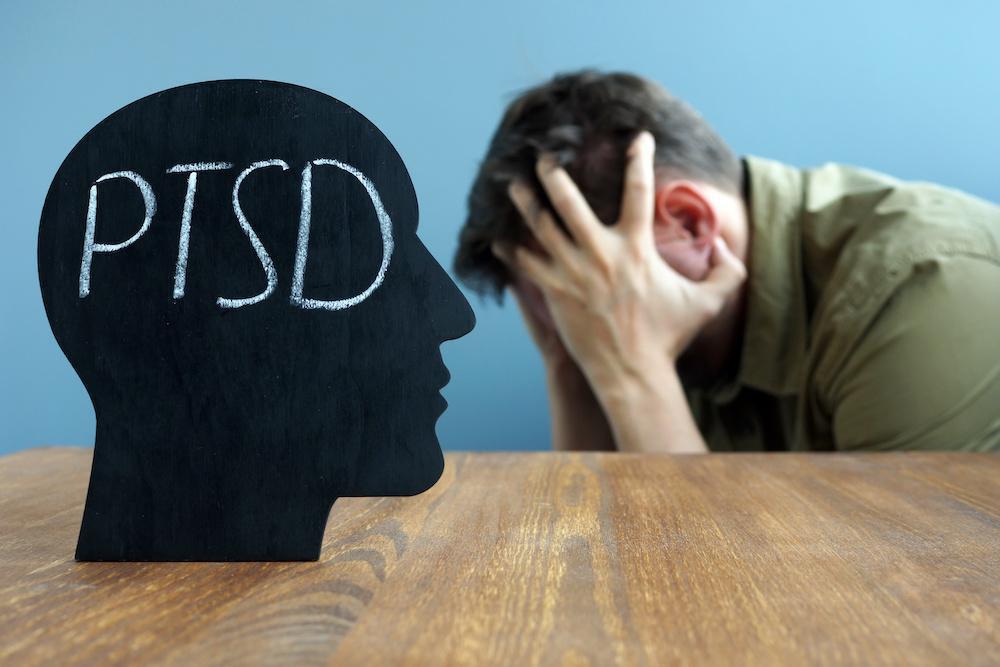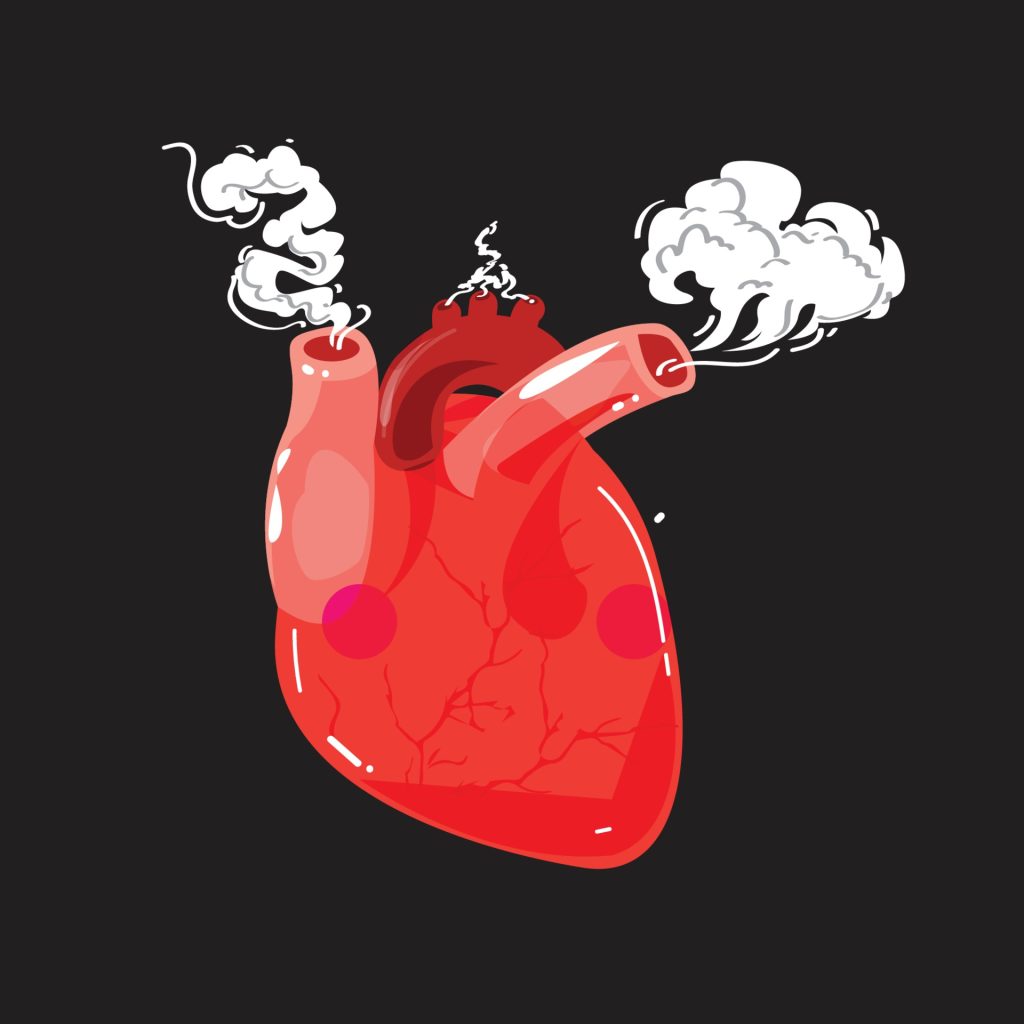Is there a link between PTSD and Erectile dysfunction?
Men of various ages and socioeconomic backgrounds experience erectile dysfunction (ED), a prevalent problem with sexual performance. In fact, it’s thought that 30 million American men suffer from erectile dysfunction to some extent.
Physical health conditions like high blood pressure, diabetes, and atherosclerosis are to blame for the majority of cases of ED (clogged arteries). However, for many men, erectile dysfunction is also significantly influenced by mental health issues. These include post-traumatic stress disorder(PTSD), sexual anxiety, and depression.
In fact, numerous studies have demonstrated a connection between PTSD and erectile dysfunction (but more on that later). If you have PTSD, it could be harder for you to keep an erection while having sex or to acquire one while you’re sexually aroused. Your capacity to sustain a happy, satisfying sexual life may be seriously impacted by this.
The good thing is that both psychological erectile dysfunction and post-traumatic stress disorder may be treated, typically with a combination of treatment and medication.
Cause of Erectile dysfunction
There are many factors involved in male sexual arousal, including hormones, emotions, nerves, muscles, and the blood vessels. There are a number of factors that can contribute to erectile dysfunction. It is also possible for erectile dysfunction to be caused or worsened by stress and mental health concerns.
In some cases, erectile dysfunction is caused by a combination of physical and psychological factors. In some cases, anxiety about maintaining an erection may be caused by a minor physical condition that slows down your sexual response. A result of this anxiety or stress may exacerbate the problem of erectile dysfunction or lead to it.
Post-Traumatic Stress Disorder

A horrific event can cause post-traumatic stress disorder (PTSD), a mental health disease that can be brought on by experiencing it or seeing it. Flashbacks, nightmares, excruciating anxiety, and uncontrollable thoughts about the incident are just a few possible symptoms.
The majority of people who experience traumatic circumstances might initially struggle to adjust and cope, but with time and adequate self-care, they typically get better. You may have PTSD if the symptoms worsen, last for weeks, months, or even years, and affect your daily functioning.
Symptoms of PTSD
Numerous symptoms could be associated with PTSD, the most of which start to manifest three months after the traumatic incident that caused them. Among the typical signs of PTSD are:
- flashbacks to the horrific incident, frequently accompanied by an immediate bodily response
- nightmares or frightful ideas
- Avoiding locations, things, or activities that serve as reminders of the painful event
- consciously ignoring any sentiments or ideas connected to the incident
- Having trouble relaxing, sleeping, and generally feeling uptight
- being quickly shocked and/or displaying irrational anger
- difficulty recalling specifics of the causal event
- negative self-talk, feelings of shame or blame, and self-doubt
- a decline of enthusiasm for your regular interests and hobbies
Many persons experience PTSD symptoms together with depression or an anxiety condition at the same time. You may be more likely to experience PTSD if certain conditions exist. These include experiencing horror, fear, or helplessness, going through a traumatic incident like a sexual assault, going through trauma as a child, suffering an injury, or witnessing an injury to another person.
Additionally, if you have a history of substance misuse or other mental illnesses, or if you experience significant stress following a traumatic event, you may be more likely to develop PTSD.
Links between PTSD and Erectile dysfunction
The potential link between PTSD and erectile dysfunction has been investigated by researchers for many years, and evidence suggests that men with PTSD are more likely than their peers to experience ED.
In a 2002 study that appeared in the journal Urology, 85% of combat veterans receiving PTSD treatment disclosed signs of erectile dysfunction. Only 22% of the males in the control group experienced ED, in contrast.
In addition, the males with PTSD had a higher proportion of moderate to severe ED than their peers, which impacted 45% of the men with PTSD and only 13% of the men in the control group.
A randomized trial containing data from more than 1,000 patients, which was published in the journal Annals of General Psychiatry in 2021, discovered that males with post-traumatic stress disorder had a higher risk of developing ED than men in a non-PTSD group.
Simply put, there seems to be a strong correlation between post-traumatic stress disorder and a higher likelihood of experiencing erectile dysfunction.
Research analysis
The authors of a review that was published in the Journal of Sexual Medicine indicate that women are also prone to experience sexual dysfunction as a result of post-traumatic stress disorder, even though PTSD is frequently connected to battle in men.
One of the outcomes from this study is that the type of trauma does not matter when it comes to sexual dysfunction brought on by trauma.
Another was that the inability to control and divert the arousal necessary for sexual function from intrusions and aversive hyperarousal that can occur with post-traumatic stress disorder may be the basis for the sexual dysfunction caused by PTSD.
Sexual activity and PTSD both cause physiological arousal that resembles the “fight-or-flight” reaction. When a person with PTSD becomes aroused, the instinctive response sets off PTSD symptoms that obstruct optimal sexual function, leading to issues like ED.
ED Treatment Options For Men With PTSD
Almost always, erectile dysfunction is curable. You can treat erectile dysfunction with medicine and healthy, constructive adjustments to your behaviours and lifestyle, in addition to enhancing your mental health by addressing post-traumatic stress disorder.
Four medicines for the treatment of ED have currently received FDA approval, all of them are PDE5 inhibitors.
- Sildenafil. Sildenafil, the primary component of Viagra, relieves ED symptoms for around four hours after administration.
- Tadalafil. Tadalafil, the main ingredient in Cialis, is a long-lasting medicine that can treat ED for up to 36 hours after administration.
- Vardenafil. Vardenafil, the active component in Levitra, offers ED relief for four to six hours after each dose.
- Avanafil. Avanafil, sold under the brand name Stendra, is a more recent ED drug that takes 15 to 30 minutes to take action and has a lower likelihood of having negative effects.
When you feel stimulated, it will be simpler for you to get and keep an erection thanks to these drugs’ increased blood flow to your penis.
Making small adjustments to your everyday routine can help lower your risk of coping with recurring erectile dysfunction in addition to using medication. These consist of staying physically active, eating a balanced diet, quitting smoking, and upholding sound sleep patterns.
Your mental health may benefit from some of these improvements as well. More information on how you can modify your daily routine to enjoy greater sexual function and wellbeing is included in our list of natural ways to boost your erections.
REFERENCES:
- https://www.mayoclinic.org/diseases-conditions/post-traumatic-stress-disorder/symptoms-causes/syc-20355967
- https://pubmed.ncbi.nlm.nih.gov/12429320/
- https://www.forhims.com/blog/ptsd-and-erectile-dysfunction
- https://www.research.va.gov/currents/spring2015/spring2015-3.cfm
- https://www.sciencedirect.com/science/article/abs/pii/S1743609515310249
For more details, kindly visit below.
